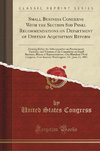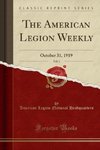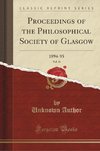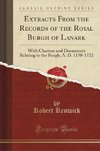
-
 Anglický jazyk
Anglický jazyk
History of Gabon
Autor: Source: Wikipedia
Source: Wikipedia. Pages: 29. Chapters: Elections in Gabon, Wars involving Gabon, French Equatorial Africa, Gabonese presidential election, 2009, 1964 Gabon coup d'état, List of colonial heads of Gabon, Gabonese presidential election, 2005, Kingdom of Orungu,... Viac o knihe
Na objednávku
13.41 €
bežná cena: 14.90 €
O knihe
Source: Wikipedia. Pages: 29. Chapters: Elections in Gabon, Wars involving Gabon, French Equatorial Africa, Gabonese presidential election, 2009, 1964 Gabon coup d'état, List of colonial heads of Gabon, Gabonese presidential election, 2005, Kingdom of Orungu, List of people on stamps of Gabon, Gabonese local elections, 2008, List of colonial heads of French Equatorial Africa, Émile Gentil, French legislative election, November 1946, Postage stamps and postal history of Gabon, Gabonese parliamentary election, 1964, West Africa Campaign, Battle of Gabon, Gabonese presidential election, 1998, 1964 United States Embassy in Libreville bombings, Gabonese presidential election, 1993, Gabonese legislative election, 2006, Gabonese general election, 1967, Jean-Jérôme Adam, Gabonese general election, 1973, Gabonese legislative election, 1990, Gabonese general election, 1961, Gabonese legislative election, 1985, United Nations Security Council Resolution 153, Gabonese legislative election, 1957, Gabonese presidential election, 1986, Iwindo, Gabonese constitutional referendum, 1995, Gabonese legislative election, 1980, Gabonese constitutional referendum, 1958, Gabonese legislative election, 1952, Gabonese presidential election, 1979, Gabonese legislative election, 1969, German Congo Expedition, Gabonese legislative election, 2001, Gabonese legislative election, 2011, Gabonese legislative election, 1996. Excerpt: A presidential election was held in Gabon on 30 August 2009 after the incumbent President Omar Bongo Ondimba died on 8 June 2009. While the constitution stated that Interim President Rose Francine Rogombé should organise elections within 30 to 45 days, the Constitutional Court accepted the government's request for a delay due to the circumstances. 23 candidates were approved to contest the election, although six of them withdrew immediately before the election, reducing the field to 17 candidates. Despite the large number of candidates, three of them were considered the key contenders for the Presidency: Ali-Ben Bongo, the son of Omar Bongo, who was the candidate of the long-ruling Gabonese Democratic Party (PDG); Pierre Mamboundou, a radical opposition leader who was backed by a coalition of parties; and André Mba Obame, a former PDG member who ran as an independent and won the backing of several other candidates. According to official results announced on 3 September 2009, Bongo won the election with a plurality of 41.7% of the vote, while Mba Obame and Mamboundou both trailed with about 25% each. Opposition supporters reacted violently to the results. In the aftermath of Omar Bongo's death, reports suggested that, due to the need to update the voters' roll, the election might not be held within the 45-day period. Rogombé said on 20 June that preparations for the election would involve a "broad consultation with the active forces of the nation" and that her decisions would be made "under the triple seal of the constitution, consultations and consensus". In an interview on 22 June, Prime Minister Jean Eyeghé Ndong appeared to confirm this speculation, saying that "it seems certain that it will take us more than 45 days". Under the constitution, a delay beyond 45 days is legally permissible in a case of force majeure. Eyeghé Ndong also said in the same interview that he would consider standing as a presidential candidate if he felt he had the necessary support. The
- Vydavateľstvo: Books LLC, Reference Series
- Rok vydania: 2012
- Formát: Paperback
- Rozmer: 246 x 189 mm
- Jazyk: Anglický jazyk
- ISBN: 9781156773857



 Nemecký jazyk
Nemecký jazyk 







